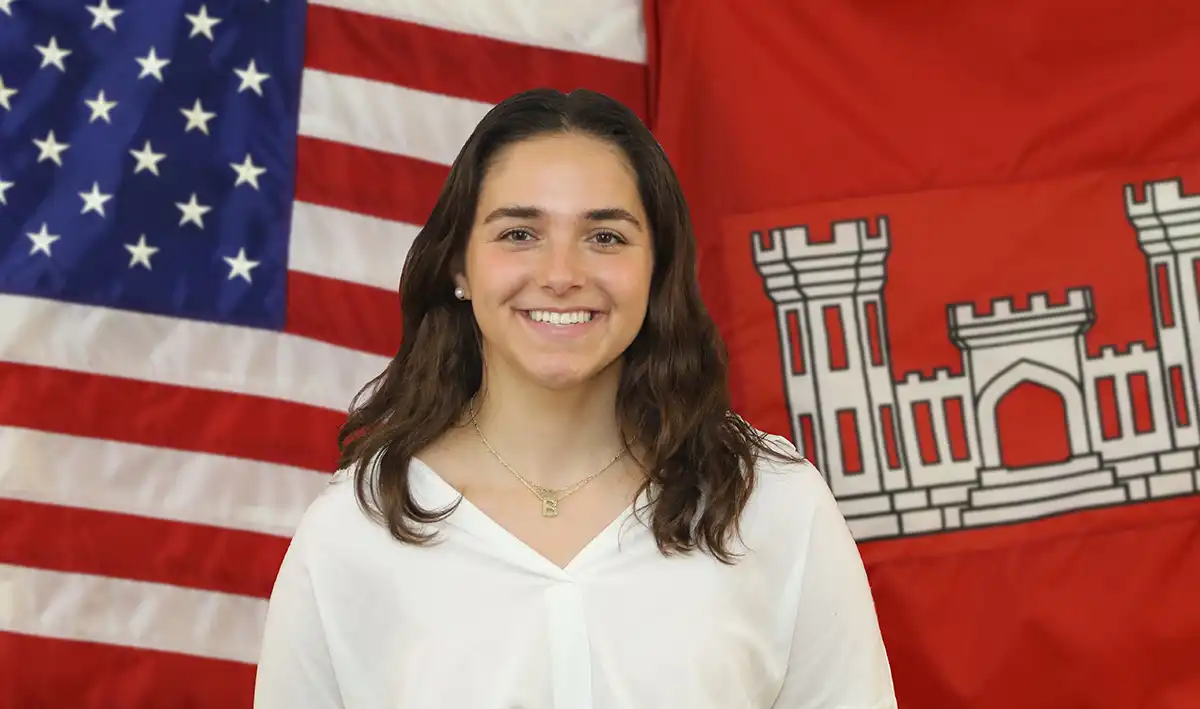U.S. Army Corps of Engineers fellow uses resilience for practical leadership tools
Meet Beth Ellinport

Beth Ellinport, U.S. Army Corps of Engineers (USACE) fellow, wants to improve the decision making of leaders and everyday people alike. (Photo Credit: Beth Ellinport)
“How can we keep critical operations running when we know threats exist, but don’t know exactly when, where or how severe they’ll be?” This is the question Beth Ellinport tries to answer every day as an Oak Ridge Institute for Science and Education (ORISE) U.S. Army Corps of Engineers (USACE) fellow at the Engineer Research and Development Center Environmental Laboratory (ERDC-EL). Before she was an ERDC-EL fellow, Ellinport was drawn to tasks that required problem solving rather than pure memorization. So, she chose a path in science, technology, education and math (STEM), earning her bachelor’s in systems engineering with a minor in public health and master’s in engineering management crisis emergency and risk management from George Washington University.
Ellinport is a part of the Environmental Risk Assessment Branch, where she collaborates with the Risk and Decision Science Team and the Center for Health Engineering. Here, her focus is on the resilience of complex systems – that is their ability to absorb, recover, and adapt from any disruption, and helping to provide practical tools for decision makers and leaders. She also hopes to instill resilience in individuals, giving them actionable knowledge that becomes a daily practice rather than used only in emergency situations.
ORISE gives you the freedom to be creative and curious within a meaningful, real-world context. It’s a chance to explore new ideas, gain hands-on government experience, and shape your career path in a way that may be hard to find elsewhere."
“It’s not enough to study resilience in theory; we have to embed interventions into the complex systems people rely on every day, so that resilience becomes part of how communities function, not just how they respond when things go wrong,” said Ellinport. “Ultimately, I hope my research will help others build capacity from within, giving people the knowledge, frameworks, and technical support they need to protect themselves and recover from whatever comes their way.”
One of the events that has stuck with Ellinport the most is when she presented on emergency management resilience to several senior military leaders. She notes that the experience helped hone her confidence and communication skills. Ellinport also assisted in organizing and running two Science for Peace and Security Advanced Research Workshops with The North Atlantic Treaty Organization (NATO) members and partner countries. Collaborating with those from different backgrounds and disciplines has been a great learning experience.
When her fellowship is concluded, Ellinport plans to continue with federal research, specifically seeking a full-time role in public service. Her goal is to grow as a leader that can influence policy, while also continually expanding her education and staying up to date on new and innovative findings. She recommends the ERDC-EL program and ORISE to others.
“ORISE gives you the freedom to be creative and curious within a meaningful, real-world context. It’s a chance to explore new ideas, gain hands-on government experience, and shape your career path in a way that may be hard to find elsewhere.”
Ellinport will soon publish a paper in Nature Scientific Reports on one of the first projects she was a part of, where she collaborated with the Center for Health Engineering and Boston Children’s Hospital.
The research participation program at USACE-EL is administered by the Oak Ridge Institute for Science and Education (ORISE) under an agreement between the U.S. Department of Defense (DoD) and the U.S. Department of Energy (DOE). ORISE is managed for DOE by ORAU.

